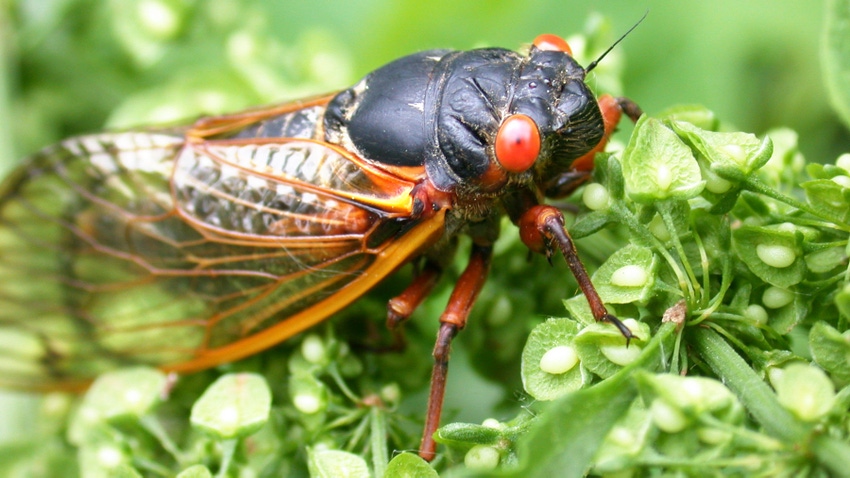
What do a hairdryer, a lawnmower and a power drill all have in common with a cicada? Well, they each make a boisterous racket, ringing in at 90 to 100 decibels. This year, folks in 16 states across the U.S. can anticipate hearing the harmonious tones of the cicada glee club, as two broods emerge in unison for the first time in 221 years.
While some cicada species make their appearance every year, Brood XIX and Brood XIII emerge every 13 to 17 years, respectively. This year, the broods will synchronize in what is known as a double-brood event, sure to bring about a distinctive harmonious buzz and a phenomenon that will not take place again until 2245.
States hosting the 2024 cicada concert include Alabama, Arkansas, Georgia, Illinois, Indiana, Iowa, Kentucky, Louisiana, Missouri, Mississippi, North Carolina, Oklahoma, South Carolina, Tennessee, Wisconsin, and Virginia.
From mid-May through late June, the insects will surface from the ground with a final molting and leave behind their unmistakable crunchy, protective layers often found attached to trees and shrubs. This marks the beginning of the cicada’s adult stage and lasts for around five weeks that are filled with mating and the sounds of their striking chorus.
The melodies come from the male cicadas, who use drum-like structures in their abdomen to create high-pitched mating sounds to attract female counterparts. Females respond with a click of their wings, and mating takes place amongst the canopies of trees and woody shrubs.
Females then create slits, known as furrows, in small twigs and branches of a half-inch or less to lay their eggs. Cicada nymphs usually hatch about six weeks later and fall to the ground, burrowing into the soil where they will remain for years until their brood emerges again.
There is no need to worry, as these insects are harmless. Cicadas are not venomous or poisonous, do not bite or sting, and pose no danger to pets, according to the U.S. Environmental Protection Agency. They sustain on a liquid diet of sap from trees and shrubs and pose no risk to flowers or fruit.
Besides, pesticides are ineffective, and their high-decibel sounds are about the only trouble they cause. In fact, they are actually beneficial insects, aerating the soil and helping to improve water infiltration during their life stages underground.
The only precaution you might consider is protecting young trees. Cicadas prefer to deposit their eggs on slender branches which can cause dieback damage, known as flagging. While this is no concern for well-established trees, it can lead to canopy loss for smaller trees. This damage can be prevented by covering young trees with mesh netting or cheesecloth during the mating season.
About the Author(s)
You May Also Like






